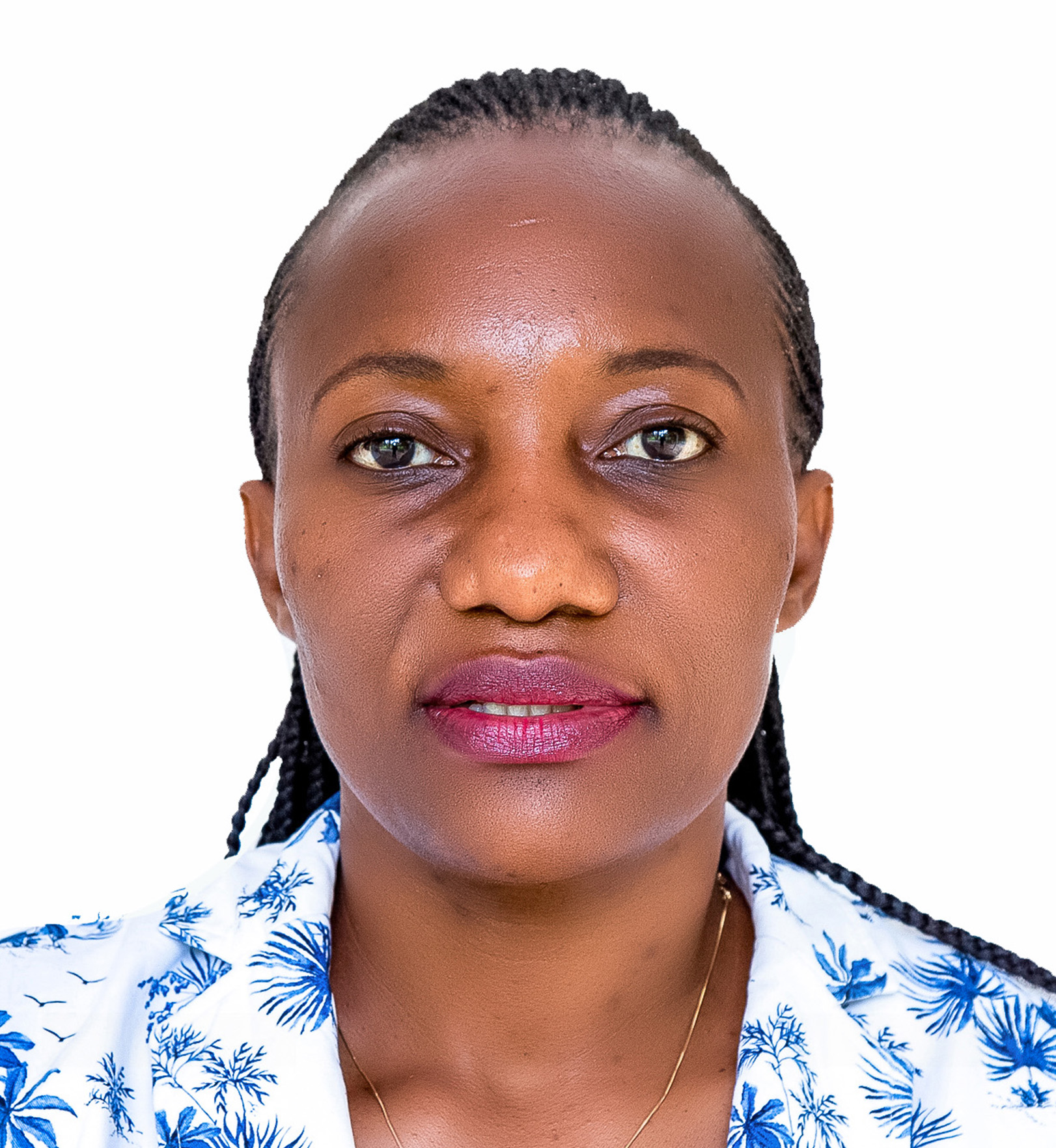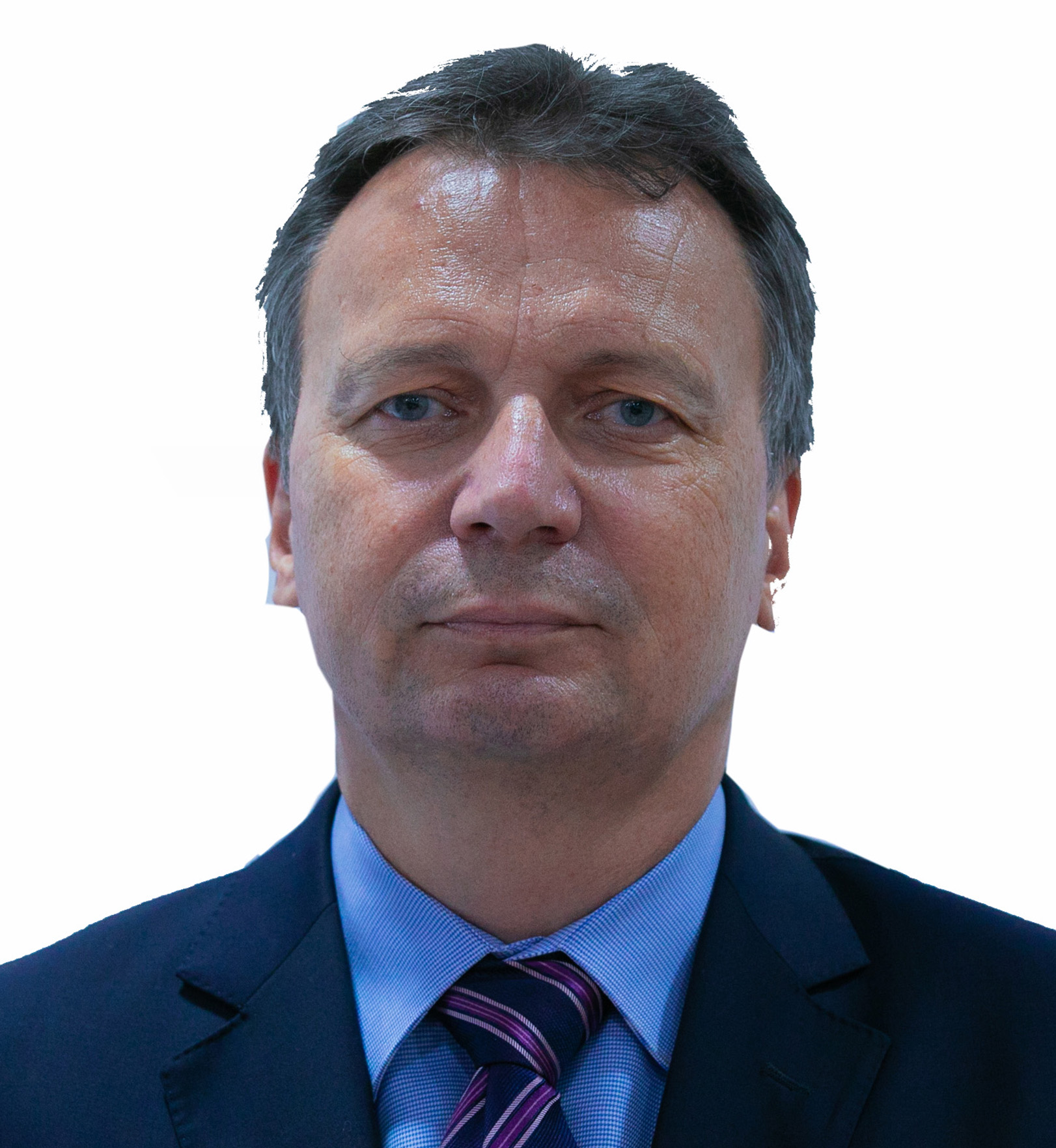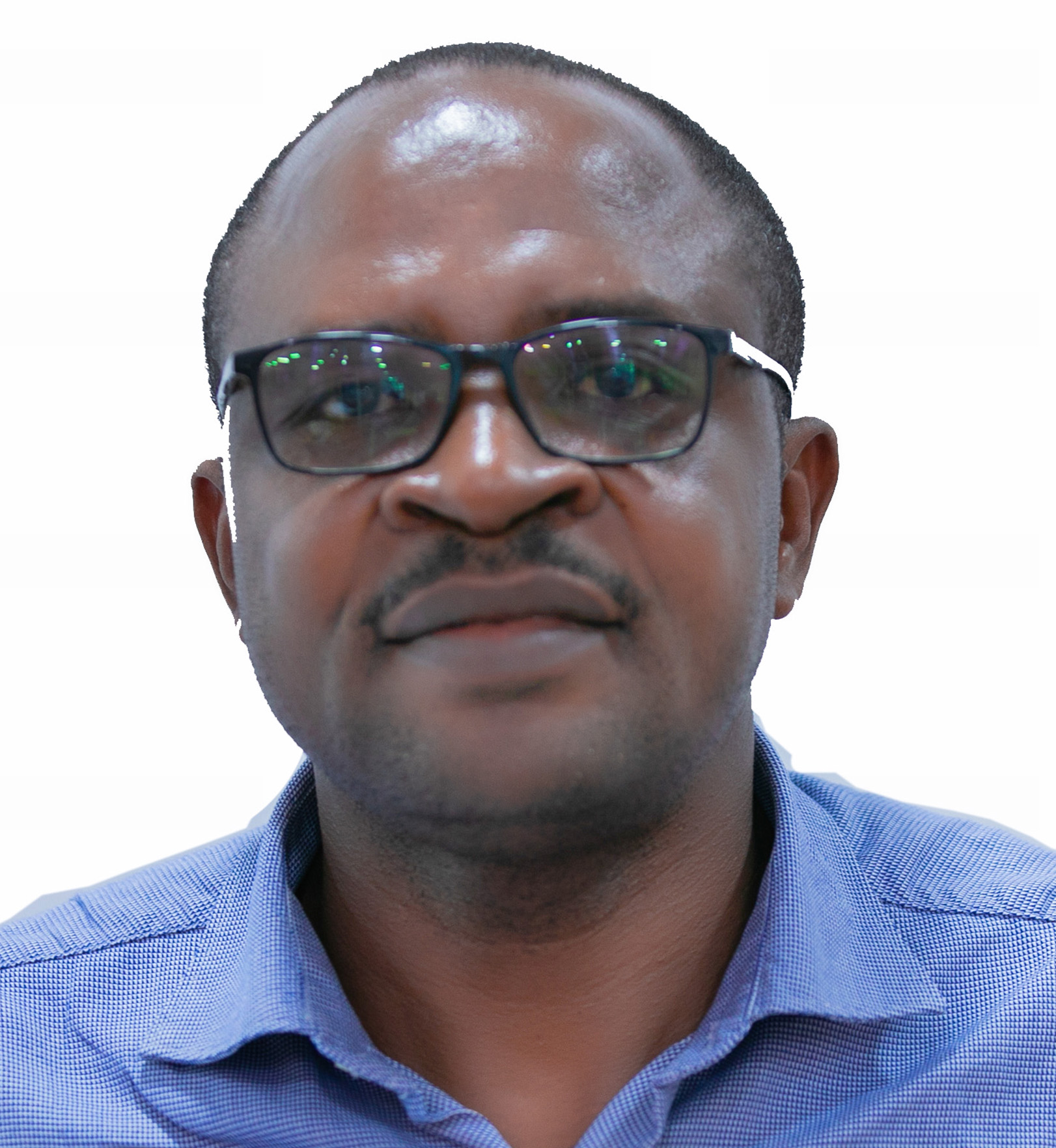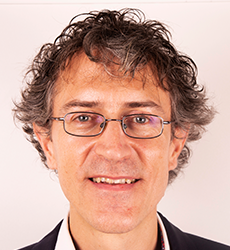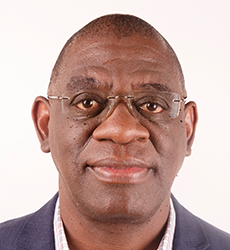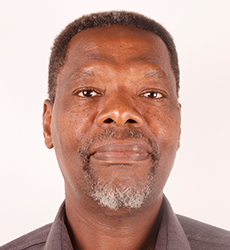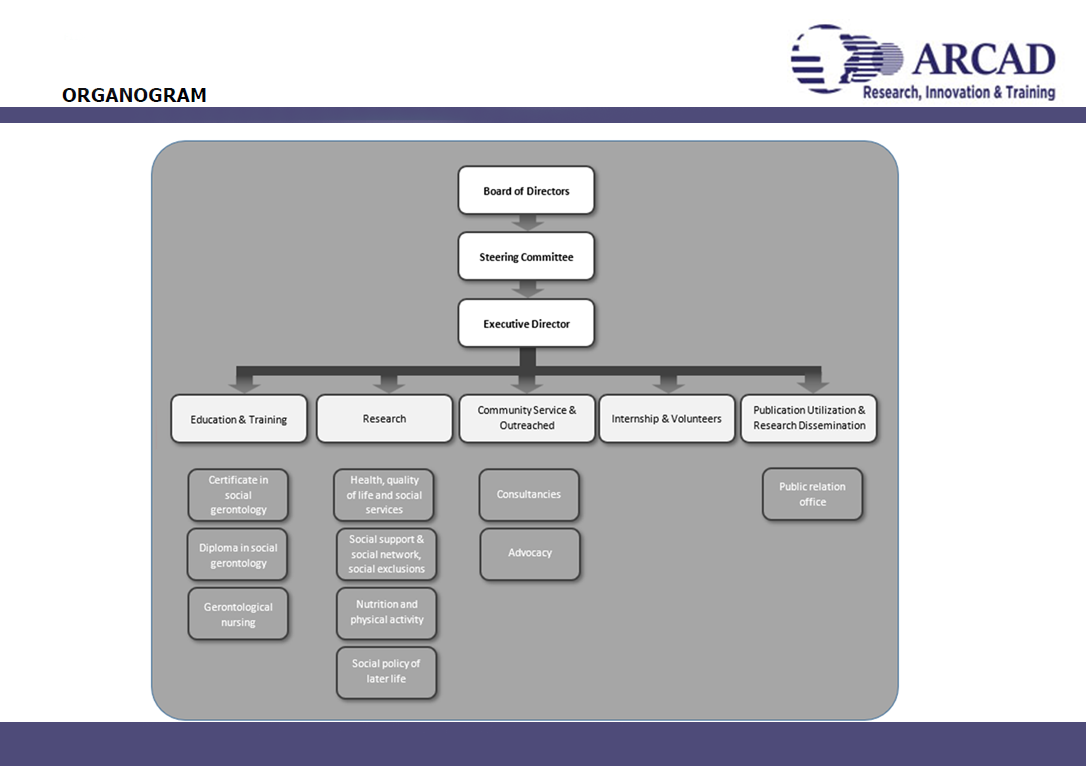ARCAD’s Board of Trustees will liaise with the ED and ARCAD’s secretariat in long-term strategic planning for the center. The Board will interface with the ED in determining the priority topics for targeted research. Think tank activities may include Board members and may inform the recommendations made by the Board. The Board will recommend desirable areas for ARCAD-wide programs to the ARCAD annual general assembly through its ED, and will also interact with the Boards of other research institutes in identifying areas for joint integrated research endeavors.
The Board Trustees will be composed of two thirds scientists, representing the four cross-cutting themes of ARCAD.
It will also include stakeholders from the sectors that include health care professionals, government agencies,
and non-profit organizations for seniors. Approximately one third of the Board (4 - 6 people)
will represent stakeholders. Membership on the Board will represent all regions in Uganda
(e.g., Central, South Western, Eastern, North-western and Northern regions), as well as gender perspectives.
Four standing subcommittees will be formed for each of the stakeholder groups and these subcommittees will provide
input on issues such as areas for enhanced research opportunities, methods for disseminating research findings
and needs for enhanced integration to the Board through their respective representatives.
The composition of the Board of Trustees is critical to the success of ARCAD.
Not only will the members of the Board advise the Director on matters concerning the center, but the Board
members will serve as ambassadors for ARCAD, who play an active role in reinforcing links within existing networks
of researchers and stakeholders and forging new relationships with other research institutes and agencies
